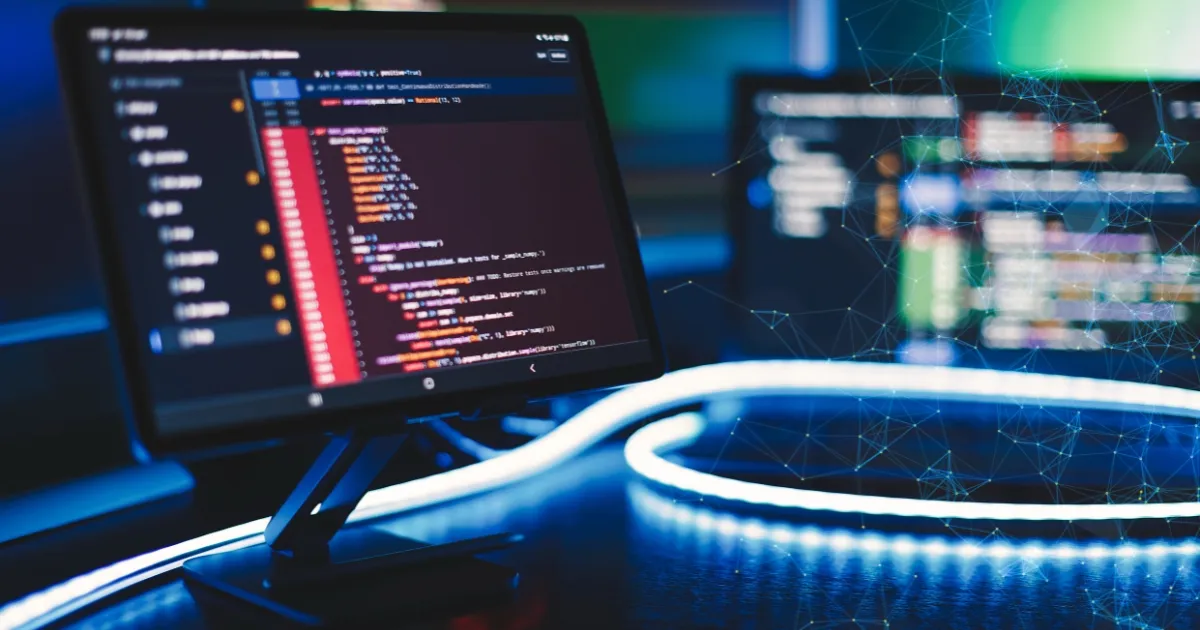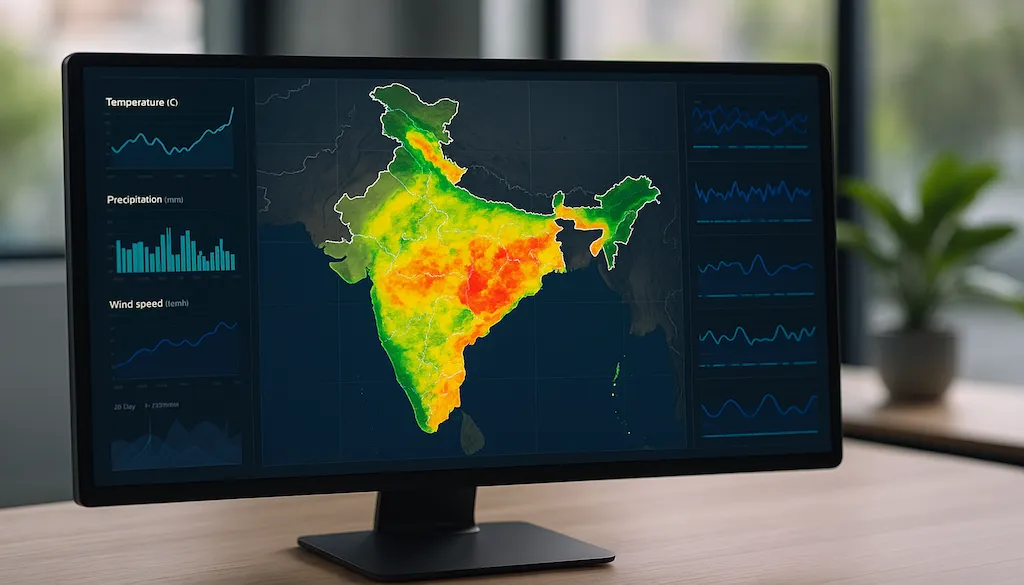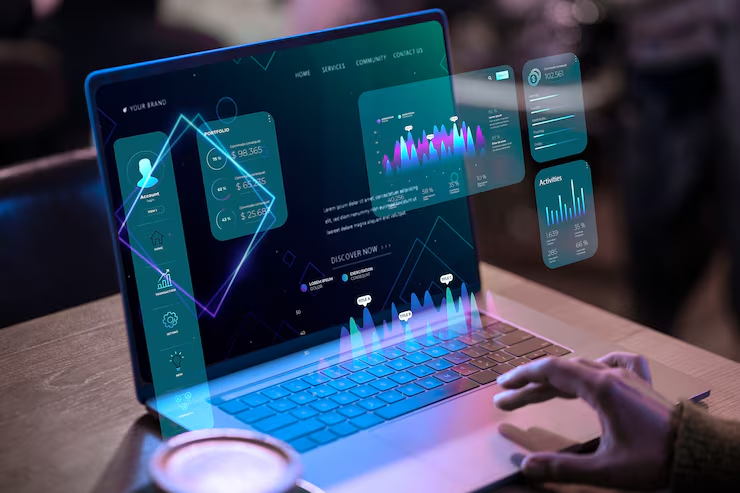My name is Alex, and I have nearly eight years of experience in the cybersecurity field. Initially, I was a bit confused. I wasn't sure where to start because there were so many words, resources, and abilities to study. But you know what? I'm here to assist you figure things out, just like I did, step by step! I'll cover everything I wish someone had informed me when I first started out in this tutorial. This path will help you study cybersecurity without feeling overwhelmed, whatever your level of experience or desire to change jobs.
How To Study Cybersecurity From Scratch: Where to Begin
It might be scary to start something new, don't you think? I spent weeks trying to decide what I should learn first when I first became interested in cybersecurity! The good news is that you can begin without a fancy degree. The very first thing I did was learn how computers and networks actually work. You can't protect something if you don't understand how it functions! I started by learning:
- How operating systems like Windows and Linux work
- What makes the internet tick
- How data moves between computers
How to learn cyber security step-by-step begins with these basics. Think of it like learning to walk before you run!
Understanding Basic Computer Skills
Before jumping into security tools and hacking techniques, I had to make sure I was comfortable with:
- Using different operating systems (Windows, macOS, Linux)
- Basic command line functions
- How networks connect
- Simple programming concepts
When I first tried using the Linux command line, I remember feeling so confused! But I kept practicing every day for just 30 minutes. Within a few weeks, I was typing commands like a pro!
Setting Up Your Learning Environment
One of the best things I did was create a safe practice environment on my computer. Here's what I used:
- A basic laptop (nothing fancy needed!)
- VirtualBox (free software to run different operating systems)
- Kali Linux (a special security-focused operating system)
I spent about $0 on this setup because these tools are free! Having this playground let me try things without worrying about breaking my main computer.
Learning Cybersecurity Fundamentals
Once I had the basics down, I moved on to understanding what cybersecurity actually means. I learned that it's not just about stopping hackers - it's about:
- Keeping information private
- Making sure data isn't changed without permission
- Keeping systems available when people need them
How to learn Cyber security for beginners really comes down to understanding these core concepts first.
Key Cybersecurity Concepts I Learned First
I found it helpful to learn these important ideas before diving into the technical stuff:
- Confidentiality: Keeping private information private
- Integrity: Making sure information doesn't get changed without permission
- Availability: Keeping systems running so people can use them
- Authentication: Making sure people are who they say they are
- Authorization: Deciding who gets access to what
I remember when these concepts finally "clicked" for me. I was reading about a data breach in the news and suddenly understood exactly what had gone wrong and why it mattered!
Understanding Different Types of Threats
The cybersecurity world has its own "bad guys." Learning about them helped me understand what I'd be protecting against:
- Malware (viruses, ransomware, spyware)
- Social engineering (tricks to fool people)
- Network attacks (ways to break into systems through internet connections)
I was able to describe the facts of what went and how it may have been avoided when ransomware occupied my friend's PC. I realized then that my studies were having an impact!
Building Practical Skills Through Free Resources
Money was tight when I started learning, so I got creative with free resources. The good news is there are tons of amazing free materials out there!
How to learn cyber security for free is totally possible - I did it myself using:
- YouTube tutorials
- Free online courses
- Community forums
- Open-source tools
- Practice websites
I spent six months learning purely from free resources before I even considered paying for anything. By that point, I already had enough skills to start doing simple security tasks!
My Favorite Free Learning Resources
These are the exact resources that helped me the most:
- Cybrary - They offer free courses on everything from basic security to advanced topics
- TryHackMe - Interactive labs where you can practice skills
- OverTheWire - Fun security challenges that teach you as you play
- YouTube channels like "NetworkChuck" and "John Hammond"
- Reddit communities like r/cybersecurity and r/netsec
I started spending an hour each evening watching tutorials and trying things out. The hands-on practice was what really made the knowledge stick!
Building a Learning Routine That Works
Learning consistently made a huge difference for me. Here's the schedule I created:
- Weekdays: 1 hour of learning new concepts
- Weekends: 2-3 hours of hands-on practice
- Sundays: Review what I learned that week
This might seem like a lot, but I replaced my Netflix time with learning. After a few weeks, I actually looked forward to my study time because I could see my progress!
Hands-On Practice: The Secret to Really Learning
Reading about cybersecurity is one thing, but actually doing it is totally different! I learned this the hard way after spending weeks reading books but struggling to apply what I'd learned. The turning point came when I started doing hands-on labs and exercises. Here's what worked for me:
Setting Up a Home Lab
I created a simple lab on my computer using:
- Virtual machines running different operating systems
- A small network where I could practice security testing
- Sample vulnerable programs to practice finding and fixing problems
My first home lab was just two virtual machines on my laptop - one running Windows and one running Linux. That was enough to start practicing!
Capture The Flag (CTF) Competitions
Similar to safety issues, CTFs teach you new abilities as you play. Although I was anxious for my first CTF, it was a ton of fun! These contests were beneficial to me:
- Learn to think like a hacker
- Practice real security skills
- Meet other security enthusiasts
- Build confidence
I recall trying to complete a password cracking task till two in the morning. I couldn't sleep when I finally worked it out because I was so happy!
Practice Websites and Vulnerable Systems
These websites let me practice ethical hacking in a safe, legal environment:
- Vulnhub - Downloadable vulnerable systems
- Hack The Box - Online lab environments
- DVWA - A deliberately vulnerable web application
When I first managed to find a security hole in a practice website, I felt like a real cybersecurity expert! It was such a confidence boost.
Networking Skills: A Key to Cybersecurity Success
Understanding networks is super important in cybersecurity. I spent extra time learning:
- How data travels through networks
- Common network protocols
- Network security devices
- How to analyze network traffic
I found this intimidating at first, but breaking it down into small pieces made it manageable.
Basic Networking Concepts I Mastered
These fundamental concepts helped me understand more advanced security topics later:
- Subnetting and IP addressing
- Devices for networks (firewalls, switches, and routers)
- Common protocols (HTTP, DNS, and TCP/IP)
- Basics of network security
I practiced by setting up a small network at home and watching how data moved between devices. Seeing it in action made it much easier to understand!
Network Security Tools and Techniques
Once I understood basic networking, I learned to use:
- Wireshark for analyzing network traffic
- NMAP for network scanning
- Firewalls for controlling network access
- VPNs for secure connections
I was shocked by how much data was displayed when I first started using Wireshark to record and examine my own online browsing!
Operating System Security: Windows, Linux, and More
Different operating systems need different security approaches. I focused on:
Windows Security Fundamentals
Since most companies use Windows, I learned:
- Windows security settings
- Active Directory basics
- Windows security tools
- Common Windows vulnerabilities
I practiced by securing my own Windows computer, then helping friends and family secure theirs.
Linux Security Essentials
Linux is super important in the security world! I learned:
- Basic Linux commands
- File permissions
- User management
- Linux security tools
I remember feeling so proud when I successfully hardened my first Linux server against common attacks!
Mobile Device Security
With phones being everywhere, I also studied:
- iOS and Android security features
- Mobile security threats
- App security testing
- Mobile device management
This knowledge came in handy when I helped my mom secure her smartphone after she downloaded a suspicious app!
Web Application Security: Protecting the Internet
Most cyber attacks happen through websites, so I made sure to learn:
- How web applications work
- Common web vulnerabilities (like OWASP Top 10)
- Web security testing tools
- Secure coding practices
The OWASP Top 10 list of web vulnerabilities became my study guide - I worked through them one by one.
Common Web Vulnerabilities I Learned About
These were the most important web security issues I studied:
- SQL injection
- XSS, or cross-site scripting
- Forgery of cross-site requests (CSRF)
- Insecure direct object references
- Security misconfigurations
I practiced finding and fixing these issues in practice applications. It was like solving puzzles!
Web Security Testing Tools
These tools helped me learn web security:
- OWASP ZAP - For finding web vulnerabilities
- Burp Suite (free community edition) - For testing web applications
- Browser developer tools - For understanding web pages
Using these tools showed me how vulnerable many websites really are!
Cybersecurity Certifications: Are They Worth It?
I started looking at login details after studying the basics. What I found is as follows:
Entry-Level Certifications That Helped Me
These certifications gave my resume a boost without requiring years of experience:
- CompTIA Security+ - Great starting point
- CompTIA Network+ - Helped with networking fundamentals
- Certified Ethical Hacker (CEH) - Introduced me to hacking techniques
It took three months of study to earn my first certification, but the effort was worthwhile! It helped me prove what I knew to potential employers.
Self-Study vs. Formal Education
I decided to self-study since I lacked the funds for college. This is what I found to be effective:
- Free online resources
- Practice labs
- Study groups with other learners
- Applying skills to real problems
This approach took discipline, but it absolutely worked! I learned just as much (or more) than friends who took expensive courses.
Finding Your Cybersecurity Path
One thing that surprised me was how many different career options exist in cybersecurity! After exploring different areas, I found the ones that excited me most:
Cybersecurity Career Paths I Explored
These are some of the paths I considered:
- Security Analyst - Monitoring systems for threats
- Penetration Tester - Ethically hacking systems to find weaknesses
- Incident Responder - Handling security breaches
- Security Engineer - Building secure systems
- Security Consultant - Advising organizations on security
I tried a little bit of each before deciding where to focus. This exploration helped me find what I truly enjoyed!
Building a Personal Brand in Cybersecurity
As I learned, I also worked on building my professional presence:
- Created a technical blog
- Shared what I was learning on social media
- Participated in online security communities
- Helped others who were just starting out
When I answered questions in forums, I was surprised to find I knew more than I thought!
Getting Experience Without a Job
One of the toughest challenges was getting experience before landing my first security job. Here's what worked for me:
Volunteer Security Work
I offered free security help to:
- Local non-profits
- Small businesses
- Open source projects
- Friends and family
Helping my uncle secure his small business website gave me real-world experience I could talk about in interviews!
Creating a Portfolio of Projects
I built a collection of projects that showed what I could do:
- Security tools I created
- Vulnerabilities I found and reported
- Systems I secured
- Write-ups of challenges I solved
My GitHub repository became proof of my skills even though I didn't have formal work experience.
Finding Mentors and Joining Communities
Connecting with others made a huge difference in my journey:
- Local cybersecurity meetups
- Online forums and Discord servers
- Security conferences (many have student discounts!)
- Professional organizations
The advice I got from experienced professionals saved me countless hours of confusion!
Staying Current in a Fast-Moving Field
Cybersecurity changes constantly, so I developed habits to stay updated:
Daily Learning Habits
These simple habits keep me informed:
- Reading security news for 15 minutes each morning
- Following security researchers on social media
- Subscribing to security podcasts
- Participating in weekly challenges
When the big "Log4Shell" vulnerability hit the news, I already understood it because of my daily reading habit!
Continuous Skill Development
To avoid falling behind, I:
- Try one new security tool each month
- Regularly participate in CTF competitions
- Take on progressively harder challenges
- Explore new security areas outside my comfort zone
This method makes studying a natural part of my day and maintains my abilities current.
Common Mistakes I Made (So You Don't Have To!)
Learning cybersecurity wasn't always smooth! Here are some mistakes I made that you can avoid:
- Trying to learn everything at once - Focus on one area at a time instead
- Not practicing enough - Reading isn't enough; you need hands-on experience
- Ignoring the basics - Strong fundamentals make advanced topics easier
- Being afraid to ask questions - Everyone starts somewhere!
- Focusing too much on tools, not concepts - Tools change, concepts last
I would return to basics or take a short break from a challenging subject when I became avoided. I avoided burning out because of this!
Conclusion on How To Study Cybersecurity From Scratch
After my journey from complete beginner to working professional, here's what I'd tell anyone just starting out:
- Be patient with yourself - You won't become an expert overnight
- Focus on concepts first, tools second - Understanding why is more important than just knowing how
- Practice regularly - Even 30 minutes a day adds up quickly
- Connect with others - The community is incredibly helpful
- Never stop learning - Cybersecurity is always evolving
Remember that everyone in cybersecurity was a beginner once. Even the experts started with no knowledge! I'm in awe of how much I've learnt as I reflect on my path. It's been a wonderful trip, from being baffled by simple terms to assisting with the security of vital systems. And you can do it too! How to learn cyber security step-by-step isn't about being perfect - it's about being persistent. Take that first step today, and before you know it, you'll be looking back at how far you've come! I hope this guide helps you start your cybersecurity journey with confidence. Remember, the most important step is simply to begin! Are you unsure about how to begin your cybersecurity adventure? Please feel free to remark below, and I will try my best to assist you!













